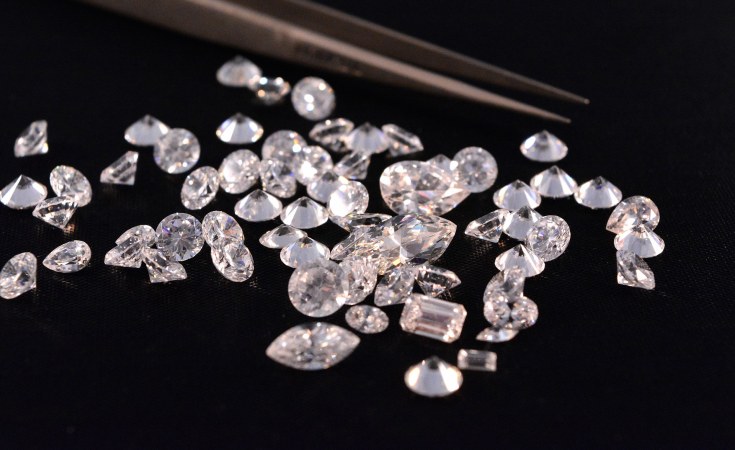Like with other minerals, what Namibians need to continue to ask is whether Namibian diamonds can contribute more to the domestic economy. "What more can we get from our diamonds; how can the diamond sector contribute more to our local economic activities?" asked mines and energy minister, Tom Alweendo, yesterday.
Alweendo asked these questions at the announcement of the new Diamond Board, which is tasked with advising the minister on matters relating to the diamond industry. The Diamond Act established the creation of the Diamond Board.
"As we all know, diamonds play a very important role in our economy. Of the total exports from the mining industry, more than 50% comes from the diamond industry. In 2022, of the total taxes from the mining industry, 55% came from the diamond sector. It is that important, requiring us to manage the sector with due care," said Alweendo.
The minister added that the biggest diamond producer in the country is still Namdeb, the 50:50 joint venture between the government and De Beers. Namdeb has two subsidiaries, namely Namdeb that does the land-based mining, and Debmarine, that mines offshore.
"Over the years, more and more of the production comes from Debmarine. It is also worthy to note that the relationship between the government and De Beers as shareholders is governed by the sales and marketing agreement, that is expiring in May 2026, and a new agreement will be negotiated. One of the key features of the current agreement is that 15% of the total diamond production is allocated to Namdia and 35% is allocated to the local cutting and polishing industry," Alweendo explained.
"In my view, one of the biggest challenges the global diamond industry will be faced with, is the challenge that comes from the lab-produced diamonds, commonly known as synthetic diamonds.
These are diamonds that are artificially produced, and they look exactly like the natural diamonds. They are produced at lower cost and are likely to attract a segment of diamond consumers. If more and more people start to buy synthetic diamonds, natural diamond producing countries will lose the market and this will have a negative economic impact," Alweendo cautioned.
He continued that while it is not possible to prevent the production of synthetic diamonds, it is possible to insist that they are not marketed as natural diamonds.
"These will be some of the issues I expect the board to pay attention to and advice how best to proceed. As per the Diamond Act, you as members have been nominated by various stakeholders, such as the producers, dealers, cutters and polishers. You are, therefore, experts in the industry and I hope you will bring your expertise to bear and ensure that our diamond
industry continues to be managed in the best manner possible," said Alweendo.
The new Diamond Board members are Erasmus Shivolo (chairperson), Maenge Shipiki Kali (deputy chair), Festus Nghifenwa, Pauline Thomas, Wollen Zuleika Nell, Benita Herma, Brent Eiseb, Nekulilo Ithete, Bartholomeus de Klerk, Emily Kapulwa, Desley Somseb and Isabella Chirchir.


